BTN research shows that 82 percent of buyers plan to
negotiate lodging rates for 2021. Sources see a hybrid approach shaping up,
where buyers are negotiating their top properties, but rolling over their 2020
rates for the majority, or switching to dynamic. Comments were edited for
length and clarity.
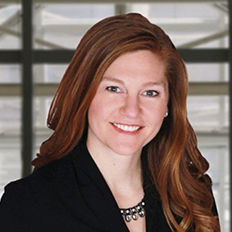
Look Who’s Talking...
Laura Kusto, Advito Sr. Director & BCD Travel Global Hotel Practice Lead
On Agreement Structures: The hybrid approach is the
thoughtful and right thing to do, given that many clients are either still not
on the road right now and may have a 50 percent to 70 percent drop in volume
for next year. You don’t want to ask hotels to take the time to bid on business
if you have no business.
On the Pandemic Opportunity to Reshape Hotel Sourcing: BCD
has been tracking rates for months and they are down. This environment gives
clients a safe way to try [dynamic pricing], to eliminate as much of the risk
as possible. I think that’s been a big positive.”
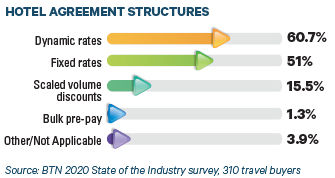
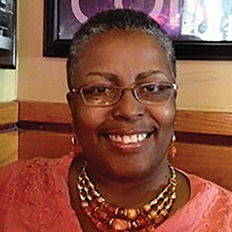
Look Who’s Talking...
Carmen Smith, ICF Sr. Manager Travel & Events
On Rolling Over Rates to 2021: I had just finished expanding
ICF’s hotel program in January. With Covid happening in March, I haven’t had a
chance to really look at productivity and what those hotels can or cannot do
for us. Currently, 16 hotels in the program are closed, but I’ve had challenges
getting in touch with hotels that are open. They’re not answering the phone, or
they take a long time. That said, I know one of our account managers just
returned from furlough and it’s great to have them back.
On the Prospect of Dynamic Pricing: Ninty-five percent of my
program is negotiated rates. I’m talking to some [hotel companies], and a few
chain brands wanted to move to dynamic, which I am not a fan of. For me,
dynamic seems to benefit the hotels more than the program.
On New Covid Health Standards: It is a partnership. We do
talk to suppliers, but we have to hold them accountable for the things they
promise. There have been some positive changes during Covid. Cleanliness
levels, for example, should stay in place. I’m hoping it holds all of us to a
higher standard going forward.
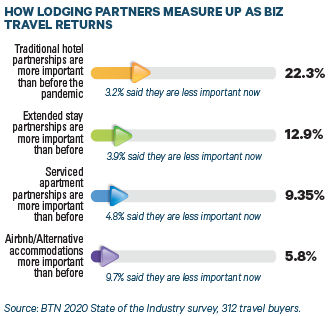

Look Who’s Talking...
Neil Hammond, GoldSpring Consulting Partner
On 2021 Hotel Rates: Everybody understands that static rates
are not going to perform in the marketplace, not when the daily rates have gone
down 30 percent.
On the Prospect of Dynamic Float: One strategy will be to
roll rates over into 2021 but pair that rate with a dynamic float [i.e., the
company has the negotiated rate as a backstop, but the traveler will get the
dynamic rate if it’s lower]. Some chains are offering that float immediately,
but some are not starting it until Jan. 1 or even the program start [date] for
the corporation. That is something buyers should look out for. If you can, push
for the dynamic float to start now.
On Contract Terms: Some chains will be flexible with the
rollover and float, and willing to entertain properties being added to programs.
Others are saying, “You will sign this now and you will not negotiate for the
next 18 months.” So, if you make a change to the program, the agreement may be
off the table.
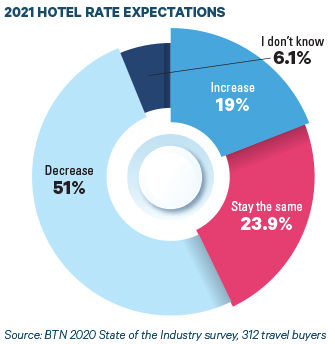
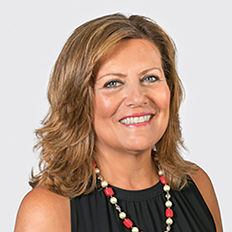
Look Who’s Talking...
Ann Dery, S&P Global Director of Global Travel
On S&P Global 2021 Hotel Strategy: Our program cycle is
June 1 to May 31. I extended rates through December when the pandemic hit.
[Going into 2021], it’s possible we’ll go with all dynamic rates. I don’t
really foresee a way I can negotiate in good faith any sort of static discount
when I have no idea what my volume will be. We will do an audit of all the
properties first to see if they are open, then we’ll see if negotiated rates
are anywhere near the best available rate.
On 2021 Negotiated Rates: I’ve looked at a study where the
average [negotiated] discount was 17 percent off BAR, which sounds about
right—somewhere between 10 percent and 20 percent, depending on the market. I
assume the companies that are going to get 30 percent [discounts] are the
Oracles, Googles and Microsofts of the world.
On Sustaining Supplier Relationships: It’s been challenging
and it’s different with different suppliers. We’ve had one hotel partner with
our account manager returning from furlough and actively engaging with us.
Others are still “MIA.” One company has asked me to go through a general email
address to request information. I was really surprised, and it’s a bit
alarming.
On Cleanliness Guarantees: The focus on cleanliness and
protocols is one of the positive things to come out of this. But how does a
hotel company guarantee those standards especially when so many are independent
franchisees? We’ve had an experience where travelers flagged a hotel that was
not living up to the enhanced standards. Our account manager handled the
situation immediately, comped the rooms and moved the travelers to new hotels.
That helped salvage the situation, but the [cleanliness] guarantee didn’t work.
Buyers will need to push for accountability in this area.

Look Who’s Talking...
Bjorn Hanson, NYU School of Professional Studies Jonathan M.
Tisch Center of Hospitality Adjunct Professor
On Taking the Negotiating Reins in 2021: My annual hotel
industry report predicts rate cuts of up to 25 percent. Some [buyers] are
saying they don’t know what to do and aren’t going to issue RFPs, but people
who have the best ability to negotiate right now are corporate travel managers.
On Onsite Service Levels & Responsiveness: Many hotels
are not fully staffed yet, and some front-of-the-house employees could be
supporting reduced housecleaning staff, for example. A general manager might
now be responsible for multiple hotels, so they might not be on the premises if
there’s an issue at another property, or the front desk person has a sign
saying “back in 10 minutes” because they are delivering towels to a room.

Look Who’s Talking...
Tobias Ragge, HRS Chief Executive Officer
On 2021 Hotel Rates: Nearly all HRS clients submitted RFPs
and their negotiations have produced reduced rates. When you look at the top 100
global destinations, then you see double-digit deductions, like in New York
City and San Francisco.
On Right-Sizing the Supplier Base: HRS is bundling
customers’ supplier portfolios. As the pandemic has reduced travel volume,
corporates need to reduce the number of participating hotels in a program to
make sure they still have buying power and something the hotel partner is
willing to commit to.
On Pockets of Pandemic Recovery: Occupancy in China is
already above 65 percent. They had the Golden Week [holiday] and domestic
leisure travel. We also see that domestic transient business travel is back to
normal. But China is an outlier. We do see the growing infection rates in
Europe and the U.S.
On the Pandemic Impact on Hospitality Technology: Technology
enhancements at hotels have accelerated, not just for cleaning, but also for
touchless experiences. Virtual payment is now a core topic to discuss. It’s a
smart integration into the hotel and creating a better experience for the
traveler—no invoices, no filling out expense templates.